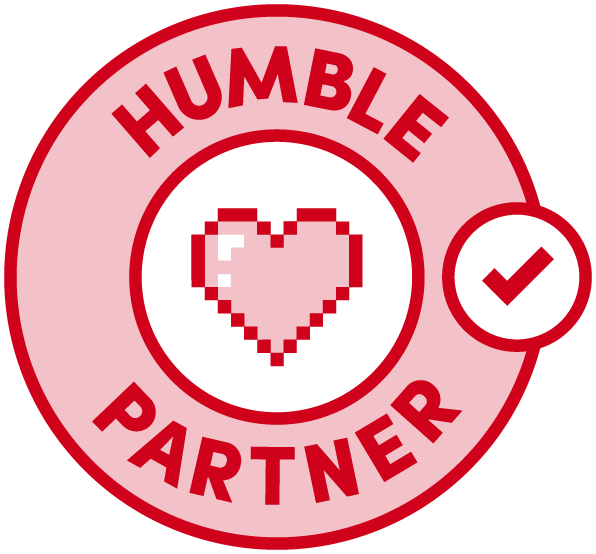Upcoming Choice-Driven Game Hindsight 20/20 Takes Inspiration From Legend Of Zelda
Hindsight 20/20 is an upcoming action adventure game developed by Triple I, an independent studio composed of former BioWare, ArenaNet, and Sucker Punch veterans. We played through a Hindsight 20/20 demo with Triple I creative director Hemanshu Chhabra, who previously worked on BioWare’s MMORPG Star Wars: The Old Republic. Prior to playing the demo, Chhabra pointed to both Ocarina of Time and Majora’s Mask as inspirations for Hindsight 20/20’s gameplay loop and combat, before adding The Wind Waker as an influence for the game’s art style.
In Hindsight 20/20, you play as Jehan, an orphan who lives in a city that prides itself on being nonviolent. Despite this, Jehan’s father is killed–for reasons unknown–by Aurthur, a headstrong man whose influence in the city grows by the day. Jehan seeks vengeance for his father’s death, as well as answers in regards to a mysterious virus that is infecting the populace and transforming them into seemingly monstrous creatures called Raakshasas. We faced off against Aurthur in Hindsight 20/20’s demo, which can be seen in the video below.
Combat is relatively simple; you utilize dodges, melee attacks, and special abilities to manage groups of enemies. While fighting, both you and enemies have two meters: one for health and the other for morale. Non-lethal attacks wound someone’s morale, while lethal ones chip away at a person’s health. Your enemies, or you, are defeated when either of those meters is reduced to zero.
Jehan is armed with a stun baton that damages morale and a sword that damages health. The former gives him a more defensive playstyle that pushes enemies away and allows him to send out bolts of lightning to zap foes into submission. Wielding the latter gives Jehan a far more aggressive fighting style, one that allows him to utilize the sword as a deadly boomerang or summon a field of blades that impale everyone around him. You can switch between either one at any point in the game, and boss enemies will respond differently depending on whether you’ve shown yourself to be a peaceful fellow or a murderer.
However, combat choices didn’t create major changes in how enemies fought–Aurthur being the one exception. There weren’t enough enemy types to warrant the use of one of Jehan’s weapons over the other, so the choice of weapon felt arbitrary, at least during the demo. Simply picking whichever matches the type of run you’re going for dialogue-wise seems like the only real decision you need to make. Chhabra said there are several other enemy types, introduced later in the game, but whether these enemies push you to weigh the moral ramifications against any benefit either weapon might provide remains to be seen.
As is, combat isn’t all that engaging. Every encounter is reduced to waiting for an enemy to attack so they expose themselves for a counter. That style of gameplay has worked in games before, such as older entries in The Legend of Zelda, but Hindsight 20/20 seemingly lacks a wide enough variety of unique enemy types to make its combat stand out.
The best parts of the demo were the tense conversations with the main NPCs, knowing that one wrong word could change the outcome of Jehan’s story in several different ways–ranging from whether friendships were maintained to who would survive by a mission’s end. I can see those moments having a butterfly effect on the story that a player would want to correct.
As an example, we played through the Hindsight 20/20 demo a second and third time, making different choices in each one–deciding to be selfish in the second run and a merciless killer in the third. As seen in the video below, these choices lead to very different outcomes in comparison to the merciful run shown above. Some of the changes are minor (NPCs and enemies condemn Jehan for his behavior) while others have much larger, more story-driven effects (saving Jehan’s friend, Andrew, from committing suicide).
The concept of choice is at the center of every part of Hindsight 20/20, a game aptly named for the expression, “Hindsight is 20/20.” Chhabra said that the game has seven different endings, and the campaign is about six hours long. The game tracks every major choice you make, ranging from who you killed and spared, to how you responded in certain conversations. At the end of the campaign, Jehan is born again at the beginning of the story with this record in hand, and you can use what you’ve learned from every previous life to fix your mistakes in the next one.
“There’s no ideal ending,” Chhabra clarified. He continued by saying three of the endings have some overlap but the other four are all “very different, very distinct.” It’s impossible to save everyone and get a completely good ending–you’ll just have to replay the game until you get the conclusion that you think is best for Jehan.
It’s an intriguing concept–utilizing the replayability of an RPG as an in-game feature–but it’s certainly one that feels more prominent when it comes to dialogue. I’m not wholly convinced the combat side of the game matches that level of intricacy. At the very least, there definitely needs to be some more variety when it comes to the kinds of enemies you fight in order to challenge how you think about approaching combat.
Hindsight 20/20 is scheduled to release on Xbox One, PS4, Switch, and PC in Q2 2020.
from GameSpot – Game News https://www.gamespot.com/articles/upcoming-choice-driven-game-hindsight-2020-takes-i/1100-6466428/




Leave a Reply
Want to join the discussion?Feel free to contribute!